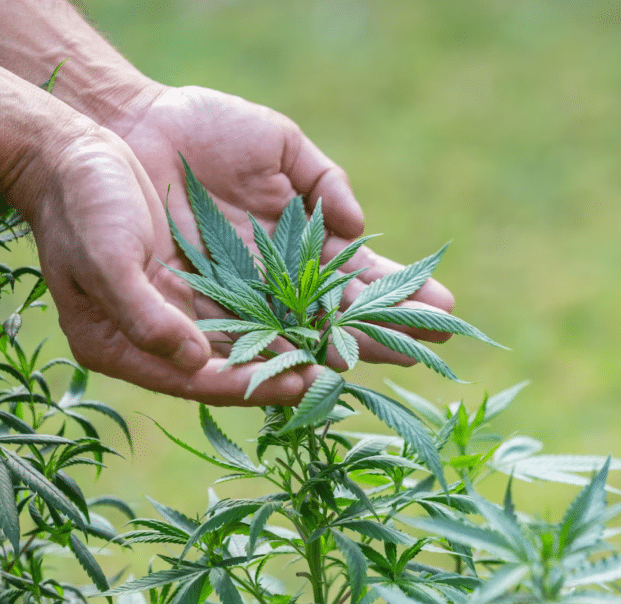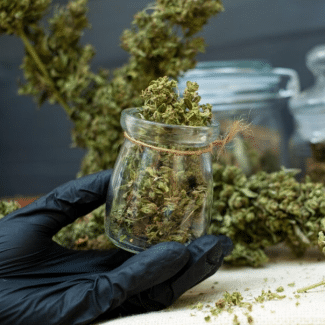
How to Open a Dispensary in Nevada
With the cannabis industry flourishing, entrepreneurs and investors are seeking chances to establish dispensaries in states that have legalized marijuana. Nevada, renowned for its thriving cannabis market, presents a profitable landscape for newcomers to venture into the field.
As the cannabis industry continues to thrive, entrepreneurs and investors are eyeing opportunities to open dispensaries in states where marijuana has been legalized. Nevada, known for its vibrant cannabis market, offers a lucrative landscape for beginners to enter the industry.
If you’re considering opening a dispensary in Nevada in 2023, it’s crucial to understand the legal requirements, licensing process, and key considerations to ensure a successful and compliant operation.
In this comprehensive guide, we will delve into the facts and figures that prospective dispensary owners need to know before embarking on their journey in the Nevada cannabis market.
Overview of Cannabis in Nevada
Nevada’s thriving cannabis industry has created a lucrative market for entrepreneurs. This overview highlights the state’s legalization status, market size, and key regulations for operating a successful cannabis business.
History of Cannabis Legalization in Nevada
The history of cannabis legalization in Nevada dates back to November 2000 when voters approved Question 9, allowing the use of medical marijuana. However, it wasn’t until November 2016 that Nevada residents voted in favor of Question 2, legalizing recreational marijuana for adults aged 21 and older.
The recreational market officially launched on July 1, 2017. In 2020, despite the challenges posed by the COVID-19 pandemic, Nevada’s cannabis industry generated over $692 million in total sales, with recreational sales accounting for the majority.
There are exactly 100 operational dispensaries throughout the state, highlighting the robust demand and economic potential of the market.
Current State of the Cannabis Market in Nevada
Nevada’s cannabis market has continued to flourish, showcasing significant growth and economic potential. In 2021, the state recorded over $692 million in cannabis sales, with recreational sales constituting a major portion of the revenue.
The market boasts a robust retail sector, with 100 operational dispensaries catering to both medical and recreational consumers. Nevada’s cannabis industry has played a vital role in generating tax revenue to support various state initiatives.
With a diverse range of cannabis products available, including flowers, edibles, concentrates, and topicals, the market caters to diverse customer preferences.
Social Equity Programs for Cannabis in Nevada
Nevada has implemented social equity programs to address the historical injustices and disparities surrounding cannabis prohibition. In 2020, the state legislature passed Assembly Bill 533, establishing the Cannabis Social Equity Program.
The program aims to promote diversity and inclusivity within the cannabis industry by providing opportunities and resources to individuals disproportionately affected by the War on Drugs. It offers benefits such as licensing and fee reductions, technical assistance, and access to capital for eligible social equity applicants.
Nevada’s commitment to social equity aims to create a more equitable and inclusive industry, providing a pathway for underrepresented communities to participate and thrive in the cannabis market.
Types of Dispensary Licenses in Nevada
In Nevada, the process of opening a dispensary involves obtaining the appropriate license. There are different types of dispensary licenses available, each catering to specific aspects of the cannabis industry.
Understanding the various license types is crucial for aspiring dispensary owners to ensure compliance and operate within the framework of Nevada’s regulations.
Conditional Adult-Use Retail Dispensary License (CAURD) in Nevada
The Conditional Adult-Use Retail Dispensary License (CAURD) is a specific license in Nevada that allows retail operation to dispensaries serving adult-use or recreational cannabis consumers. This license is granted to businesses that meet the state’s stringent criteria and regulations.
To obtain a CAURD license, applicants must undergo a comprehensive application process, which includes background checks, financial disclosures, and compliance with zoning requirements. The number of CAURD licenses issued is limited and subject to local jurisdiction restrictions.
Successful applicants are granted the authorization to sell cannabis products to individuals aged 21 and older for recreational use, complying with Nevada’s cannabis laws and regulations.
Other License Types for Cannabis in Nevada
In addition to the Conditional Adult-Use Retail Dispensary License (CAURD), Nevada offers several other license types for cannabis businesses. These include:
- Medical Marijuana Dispensary License: Enables dispensaries that serve registered medical marijuana patients.
- Cultivation Facility License: Authorizes the cultivation and production of cannabis plants.
- Production Facility License: Permits the manufacturing and processing of cannabis products, such as edibles, extracts, and concentrates.
- Independent Testing Laboratory License: Allows for the independent testing and analysis of cannabis products to ensure quality, safety, and compliance with regulations.
- Distributor License: Enables the transportation and distribution of cannabis products between licensed businesses.
- Delivery License: Allows for the delivery of cannabis products directly to consumers’ homes or designated locations.
Each license type has specific requirements and regulations that must be met to ensure compliance with Nevada’s cannabis laws.
Understanding the Cannabis Market in Nevada
Understanding the nuances of the cannabis market in Nevada is crucial for entrepreneurs and investors looking to navigate this exciting and evolving landscape.
The dynamic cannabis market in Nevada, with the legalization of both medical and recreational marijuana, offers a wide range of opportunities for businesses and consumers alike. Nevada’s cannabis market has recently seen significant growth, generating substantial revenue and tax contributions.
Application Process for a Dispensary License
Obtaining a dispensary license in Nevada requires navigating a comprehensive application process. Understanding the steps involved is crucial for aspiring dispensary owners. From meeting eligibility criteria to submitting required documentation, this guide provides an overview of the application process for obtaining a dispensary license in Nevada.
Steps Involved in Obtaining a License
The process of obtaining a dispensary license in Nevada involves several detailed steps. While the specific requirements and procedures may vary, here is a comprehensive overview of the general steps involved:
- Research and Planning: Begin by conducting thorough research on the regulations, requirements, and market conditions specific to the area where you intend to open your dispensary. Develop a comprehensive business plan that includes market analysis, financial projections, and operational strategies.
- Establish a Legal Entity: Form a legal entity, such as a corporation or limited liability company (LLC), to operate your dispensary. Consult with an attorney or business advisor to ensure compliance with all legal and regulatory obligations.
- Meet Eligibility Criteria: Review the eligibility criteria set by the Nevada Department of Taxation to confirm that you meet all the requirements. These criteria may include residency, age, background checks, and financial qualifications.
- Find a Suitable Location: Identify a suitable location for your dispensary that complies with Nevada’s zoning regulations. Consider factors such as accessibility, visibility, proximity to customers, and compliance with local ordinances.
- Secure Financing: Determine the financial resources needed to establish and operate your dispensary. This may include funding for facility build-out, inventory, equipment, staffing, and other operational expenses. Secure financing through investors, loans, or personal funds.
- Prepare a Dispensary Application: Gather all the necessary documents required for the application, which typically include proof of ownership/lease for the proposed location, financial statements, business plans, security plans, inventory control procedures, and employee training plans.
- Complete the Application: Fill out the dispensary license application accurately and thoroughly. Provide all requested information and ensure that it complies with the guidelines provided by the Nevada Department of Taxation. Pay the required application fee.
- Background Checks and Fingerprinting: Undergo background checks and fingerprinting for all individuals associated with the dispensary, including owners, partners, and key employees. This process helps ensure that all individuals meet the state’s integrity requirements.
- Application Review and Evaluation: Once submitted, the Nevada Department of Taxation will review your application for completeness and compliance. They will evaluate your business plan, security measures, financial stability, and adherence to local zoning requirements.
- Inspection and Site Visit: If your application is deemed complete and meets the initial requirements, the Nevada Department of Taxation may conduct a site visit to inspect your proposed location and evaluate its compliance with regulations.
- Approval and License Issuance: If your application successfully meets all requirements, passes inspections, and satisfies the evaluation process, you will receive approval for your dispensary license. Pay the applicable licensing fees, and your license will be issued, allowing you to legally operate your dispensary.
Note: It is highly recommended to consult the official resources, guidelines, and Nevada Department of Taxation for the most accurate and up-to-date information on the application process for obtaining a dispensary license in Nevada.
Required Documentation for a License
When applying for a dispensary license in Nevada, certain key documents are typically required. While the specific requirements may vary, here are some essential documents that are typically needed:
- Proof of ownership/lease agreement for the proposed dispensary location
- A detailed business plan outlining your objectives, market analysis, operational strategies, and financial projections
- Financial statements, including balance sheets, income statements, and cash flow statements
- Security plan detailing measures to ensure the safety and security of the premises, employees, and inventory
- Inventory control procedures, including tracking systems and compliance with state regulations
- Employee training plans and documentation of staff qualifications
- Evidence of compliance with local zoning regulations and any necessary permits or approvals
- Background checks and fingerprinting results for all owners, partners, and key employees
- Proof of financial stability, such as bank statements or financial statements showing adequate funds to support the dispensary’s operation
Note: Remember to consult the Nevada Department of Taxation or other relevant regulatory bodies for a comprehensive and up-to-date list of the required documentation for a dispensary license application.
Timelines for Obtaining a License
The timeline for obtaining a dispensary license in Nevada can vary, but here is a general breakdown of the process:
- Application Submission: Typically, it takes 2-4 weeks to prepare and submit a comprehensive application.
- Application Review: The initial review by the Nevada Department of Taxation can take around 2-3 months, depending on the volume of applications received.
- Background Checks and Fingerprinting: Background checks and fingerprinting for all individuals associated with the dispensary may take 4-6 weeks to process.
- Site Inspection: The site visit and inspection by regulatory authorities may take 2-4 weeks to schedule and complete.
- Evaluation and Decision: The evaluation and decision-making process can range from 2-6 months, considering factors such as compliance, financial stability, security measures, and local zoning requirements.
Overall, the entire process from application submission to license issuance can take approximately 6 months to a year or longer.
Financing and Business Plan for a Dispensary
Securing financing and creating a solid business plan are crucial steps when opening a dispensary. This section provides an overview of financing options and key components to include in a dispensary business plan.
Types of Financing Available
When opening a dispensary, various financing options are available, including traditional bank loans, private investors, venture capital, crowdfunding, and partnerships.
There are specialized cannabis-focused lenders and financial institutions that cater to the industry’s unique needs.
It is important to research and choose the financing option that aligns with your business goals and meets the regulatory requirements set by official bodies such as the Nevada Department of Taxation.
Importance of a Solid Business Plan
A well-crafted business plan is vital for a successful dispensary. It outlines your mission, market analysis, financial projections, marketing strategies, and operational procedures. A solid business plan helps attract investors, secure financing, and demonstrate compliance with officials.
It serves as a roadmap for your dispensary’s growth, guiding decision-making and providing a clear direction for long-term success.
Risk Management Plan
A risk management plan is crucial to identify and mitigate potential risks associated with running a dispensary. It should address compliance with state regulations, security measures, inventory management, employee training, financial controls, and customer safety.
By implementing a comprehensive risk management plan, dispensary owners can safeguard their business, minimize potential liabilities, and maintain compliance with official bodies.
Market Research and Location for a Dispensary
Conducting thorough market research and selecting the right location are critical factors when establishing a successful dispensary.
Overview of the Nevada Market for a Dispensary
The Nevada cannabis market offers significant opportunities for entrepreneurs. With a robust retail sector and a wide range of cannabis products available, Nevada attracts a diverse consumer base. However, it’s crucial to understand the regulatory framework, market dynamics, and consumer preferences to navigate this competitive market successfully.
Trends and Competition in the Nevada Cannabis Industry
The Nevada cannabis industry is characterized by dynamic trends and intense competition. Key trends include a shift towards premium products, an emphasis on sustainable and eco-friendly practices, and the rising popularity of cannabis-infused edibles.
As the market continues to grow, new businesses are entering the industry, creating a competitive landscape. Staying updated on the latest trends, consumer demands, and innovative marketing strategies is essential to thrive in this dynamic environment.
Location Requirements for a Dispensary
Selecting the right location is crucial for a dispensary’s success in Nevada. Factors to consider include zoning regulations, proximity to residential areas and transportation hubs, visibility, accessibility, and competition in the vicinity.
Dispensaries must comply with local and state regulations regarding buffer zones from schools, churches, and other sensitive locations. The buffer zone requirement for a cannabis dispensary is currently set at 1,000 feet from schools and 300 feet from churches, parks, and other dispensaries.
Conducting thorough market research and consulting with local authorities can help identify suitable locations that meet regulatory requirements and provide maximum visibility and convenience for customers.
Insurance Requirements for a Dispensary
When establishing a dispensary, understanding the insurance requirements is essential for protecting your business.
Types of Policies Required
Dispensaries in Nevada typically require various insurance policies to mitigate risks. These may include general liability insurance, product liability insurance, property insurance, workers’ compensation insurance, and cybersecurity insurance. Each policy serves a specific purpose in protecting the business, employees, customers, and assets from potential liabilities and losses.
Coverage Limits
The coverage limits for insurance policies can vary depending on the size and nature of the dispensary. General liability insurance may have coverage limits ranging from $1 million to $5 million, while product liability insurance may have higher limits to account for potential claims related to cannabis products. Property insurance coverage limits will depend on the value of the property and inventory being insured.
Costs Associated with Insurance
The costs associated with insurance for a dispensary can vary based on several factors, including the size of the business, location, coverage limits, and claims history. On average, dispensaries in Nevada may expect to pay several thousand dollars to tens of thousands of dollars annually for insurance coverage. The costs may also depend on the insurance provider, policy terms, and the specific risks associated with the cannabis industry.
Costs of Opening and Running a Dispensary
Opening and running a dispensary involves various costs, including licensing fees, facility build-out, inventory, staffing, marketing, security systems, insurance, and ongoing operational expenses.
License and Permit Fees
Obtaining a dispensary license in Nevada incurs specific fees set by the state. The nonrefundable application fee for a medical marijuana establishment license is $5,000, while the fee for an adult-use marijuana establishment license is $20,000. Additionally, annual renewal fees for both types of licenses range from $3,000 to $30,000, depending on the license category and business size.
Startup Costs
The startup costs for a dispensary can vary based on factors such as location, size, and scope of operations. On average, startup costs for a dispensary in Nevada can range from $250,000 to over $1 million. These costs encompass expenses such as facility build-out, security systems, equipment, initial inventory, marketing, licensing fees, legal and consulting fees, and personnel recruitment and training.
Ongoing Costs
Running a dispensary involves ongoing expenses. Monthly operational costs can include rent or mortgage payments, utilities, payroll, insurance premiums, security system maintenance, inventory replenishment, marketing and advertising expenses, compliance and regulatory costs, and professional services such as accounting and legal fees. Ongoing costs can vary depending on the size of the dispensary and the range of products and services offered.
Taxes and Fees
In Nevada, dispensaries are subject to various taxes and fees. These include the Retail Marijuana Excise Tax, which is currently set at 10% on the wholesale sales of adult-use marijuana; the Retail Marijuana Sales Tax, which is currently 15% on the retail sales of adult-use marijuana; and local sales taxes, which vary by jurisdiction. Dispensaries must also pay annual fees for certificate of compliance and local business licensing.
Resources for Potential Entrepreneurs in Nevada
For individuals considering starting a cannabis dispensary in Nevada, there are valuable resources available to provide guidance and support throughout the process.
Additional Resources and Links for Opening a Dispensary in Nevada
- Nevada Department of Taxation
- Nevada Cannabis Compliance Board
- Nevada Dispensary Association
- Nevada Secretary of State
- Nevada Small Business Development Center
Industry Experts in Nevada
- Riana Durrett – Nevada Dispensary Association (NDA)
- Kema Ogden – Nevada Cannabis Compliance Board (CCB)
- Joe Brezny – Government Affairs Consultant
- Will Adler – Sierra Cannabis Coalition
- Dr. Sue Sisley – Independent researcher and psychiatrist
FAQ about Opening a Dispensary
What Are the Qualifications for a CAURD License?
To qualify for a Conditional Adult-Use Retail Dispensary (CAURD) license in Nevada, applicants must meet specific requirements set by the state, including being a licensed medical marijuana establishment for at least one year, demonstrating good standing with regulatory authorities, and meeting financial and operational criteria.
How Much Does It Cost to Open and Run a Dispensary?
The costs of opening and running a dispensary can vary depending on factors such as location, size, and operational needs. Startup costs can range from $250,000 to over $1 million, including licensing fees, facility build-out, inventory, staffing, marketing, and ongoing operational expenses.
What Are the Location Requirements for a Dispensary?
Dispensaries in Nevada must comply with location requirements, including buffer zones from sensitive areas like schools and churches. Specific distance requirements can vary by jurisdiction, and it is essential to consult local regulations to ensure compliance.
What Types of Insurance Policies Are Required for a Dispensary?
Common insurance policies required for dispensaries include general liability insurance, product liability insurance, property insurance, workers’ compensation insurance, and cybersecurity insurance. Coverage limits and specific policy requirements may vary based on the size and nature of the business.
Can I Apply for a Dispensary License If I Don’t Meet the Qualifications for a CAURD License?
If an applicant does not meet the qualifications for a CAURD license, they may explore other license types available in Nevada, such as medical marijuana establishment licenses or different retail licenses depending on the regulations of the specific jurisdiction.
How Long Does It Take to Obtain a Dispensary License?
The timeline for obtaining a dispensary license can vary. It involves completing the application, undergoing background checks, securing a suitable location, meeting regulatory requirements, and passing inspections. The process can take several months to a year or longer.
What Are the Regulations for Advertising a Dispensary?
Dispensaries must comply with advertising regulations set by the state and local authorities. These regulations often include restrictions on advertising to minors, false or misleading claims, and proximity to schools and other sensitive areas.
Can I Have More Than One Dispensary Location?
The ability to have multiple dispensary locations in Nevada depends on the regulations of the specific jurisdiction. Some jurisdictions allow for multiple locations under a single license, while others may require separate licenses for each location. Compliance with local and state regulations is essential in establishing and operating multiple dispensary locations.
Endnote
Opening and running a successful dispensary in Nevada requires careful planning, compliance with regulations, and a thorough understanding of the industry. From obtaining the right license to navigating location requirements, associated costs, insurance policies, and advertising regulations, aspiring entrepreneurs must be well-informed.
Seeking guidance from industry experts, utilizing available resources, and staying updated on evolving regulations are key to achieving success in Nevada’s cannabis market.





